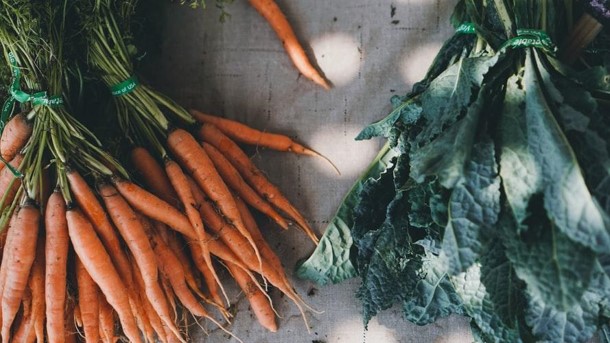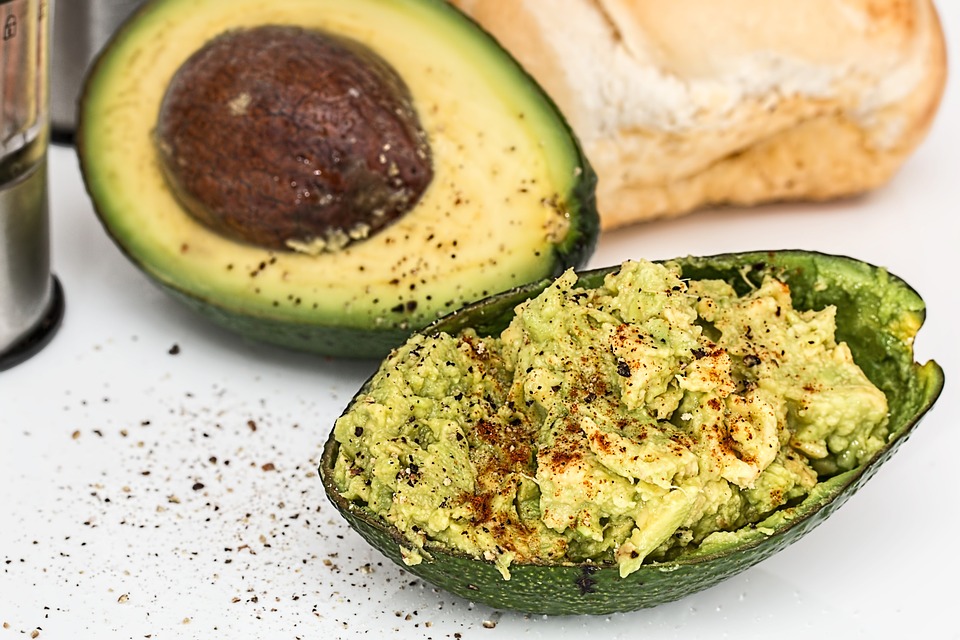

Image Source: Unsplash
You’ve probably found yourself in a situation on more than one occasion where you’ve been given the option of choosing organic or non-organic produce. While the non-organic options might be less expensive, reaching for that cheaper apple or avocado isn’t always the best option.
Simply put, non-organic foods can lead to a variety of health problems, and because of this, it’s important to know where your food is coming from as often as possible. However, if you can’t know the exact farm where your food was grown, the next best thing is to make sure it was at least grown organically.
What’s the big deal with organic vs. inorganic? Let’s take a look at some of the issues that can arise by eating inorganic produce, as well as the benefits of going organic.
An Inexpensive Risk
Again, many people find themselves reaching for inorganic produce because it’s cheaper. But, that discount comes at a bigger cost — your health. Mother Nature has known what she’s doing for years, after all, and while farmers have used different methods of protecting their crops for centuries, more common commercial pesticides weren’t used until the 20th century. Perhaps the most widely-known pesticide, DDT, was invented in 1939. DDT did a great job of protecting crops from insects, but it was eventually found to cause health problems like cancer, male infertility, miscarriages, and damage to the nervous system and liver.
Pesticides used today still put people at risk for different health conditions, including higher rates of postmenopausal breast cancer. Inorganic foods can also be risky for people with certain allergies or sensitivities to chemicals. Most allergy sufferers already know the importance of things like washing their hands frequently and keeping their homes clean, but if you’re still suffering, washing your produce thoroughly or buying organic products might actually help to alleviate more of your symptoms.
What Are the Benefits of Organic Food?
Now that you know about some of the risks associated with inorganic food, we can talk about the other end of the spectrum: the benefits of organic eating. To start, think about how you fuel your body on a daily basis. Now, think about your body as a machine, like your car. You wouldn’t fill your car up with “bad” gasoline and expect it to run efficiently — and in the same way, what you put into your body has a huge impact on your health and can even help to prevent you from getting sick.
People who typically buy organic food tend to lead healthier, more active lifestyles and make more nutritiously-focused food choices. As a result, they’re often less likely to develop diseases like Type II Diabetes. If you already have a condition like Type II Diabetes, healthy eating can help, in addition to treating it with medication like Bydureon.
While there’s a lot of focus on organic produce, organic food all around goes beyond the fruit and veggie stand. It can also refer to meat, dairy, and eggs, meaning the animals are given organic, hormone-free food, and they must have access to the outdoors. Organic meat and milk have been found to have up to 50% more nutrients than their inorganic counterparts, for example, making them better for your body.
While the health benefits of going organic are great, it’s a good choice for the planet, too. Organic farming uses less energy and reduces pollution, making it a more sustainable practice than conventional farming practices.
How to Go Organic
Making the choice to go organic doesn’t have to be overwhelming. It starts with educating yourself on all of the organic foods you should be eating including green leafy vegetables, meats, fruits, and dairy. Further, grocery stores and farmer’s markets have made it easier than ever to know what’s organic and what isn’t. Some specialty stores also only carry organic foods, while others have them clearly labeled.
There are even ways you can go organic if you’re on a budget. Growing your own vegetables without pesticides or chemicals is a great place to start and can be very rewarding. Plus, you’re in total control over how they’re taken care of. Additionally, you can choose to buy less meat (which tends to be more expensive) and increase the number of vegetables and fruits you purchase.
By making the switch to organic eating, you can take better control of your overall health. You can even download a food tracker app to log everything you eat in a day, especially as a diabetic making the switch, so you can have a full picture of the fuel you’re putting into your body. Over time, you’ll start to notice the choices you’re consciously making about what to eat and how it can boost your overall health.
While choosing organic foods over their inorganic competitors might cost a bit more, you’ll end up feeling better in the long run. You can prevent sickness, make healthier lifestyle choices, and do something good for the planet all at the same time. There’s never a wrong time to make the switch, so start checking out the labels at your local supermarket, and experience the benefits of organic eating for the rest of your life.





1 Trackback / Pingback